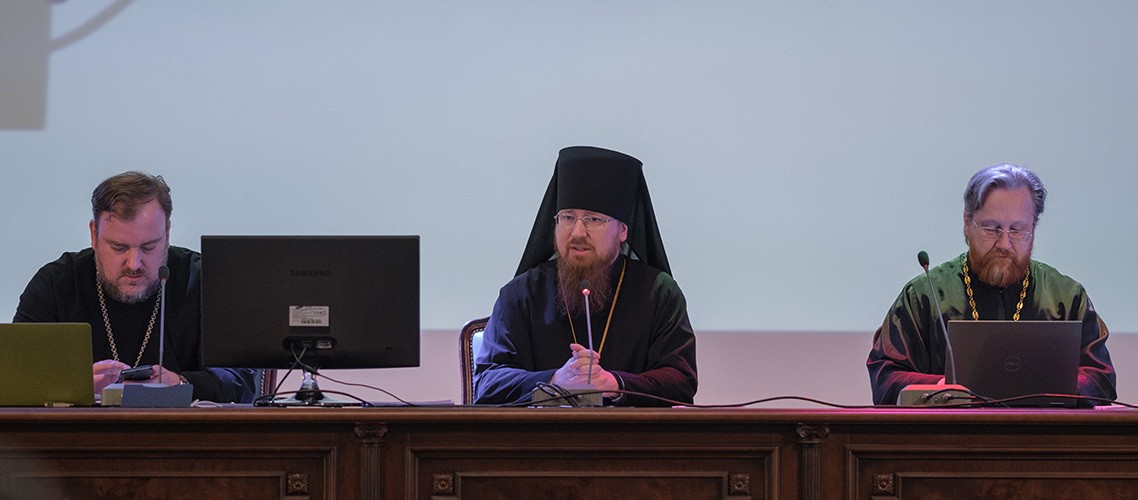
The Moscow Theological Academy hosted an annual Intercession Conference
The All-Russian Intercession Academic Scientific Theological Conference is a traditional event held on a patronal holiday of the Moscow Theological Academy. On October 12, plenary and sectional sessions were dedicated to the 800th anniversary of the birth of St. Prince Alexander of Neva.
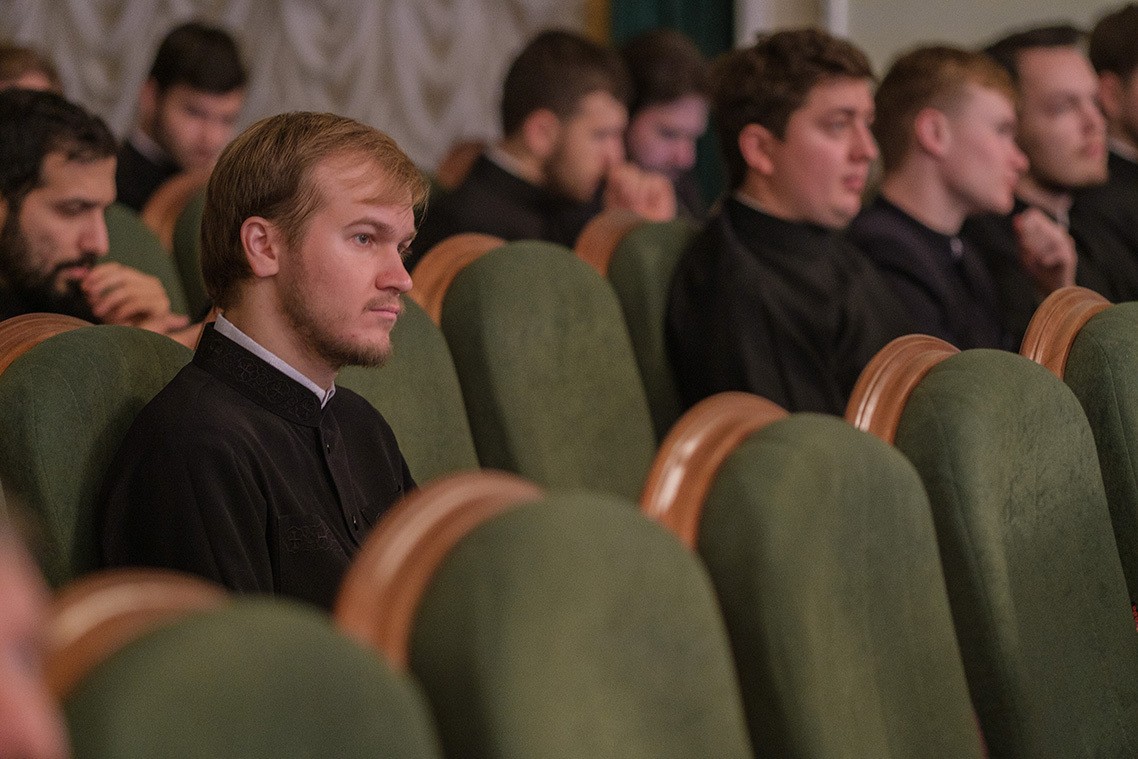
The Bishop of Zvenigorod Theodorite, Rector of the Moscow Theological Academy, opened the conference with his welcoming speech. He pointed out that, despite grateful memory of descendants, there are also skeptical points of view both on the personality of St. Prince Alexander and historical events in general. Subjectivism and relativism become two enemies of a true historian. However, for a Christian a history is not a dry chain of dates or a name list, it is an example of a changing human nature before and after the Incarnation.
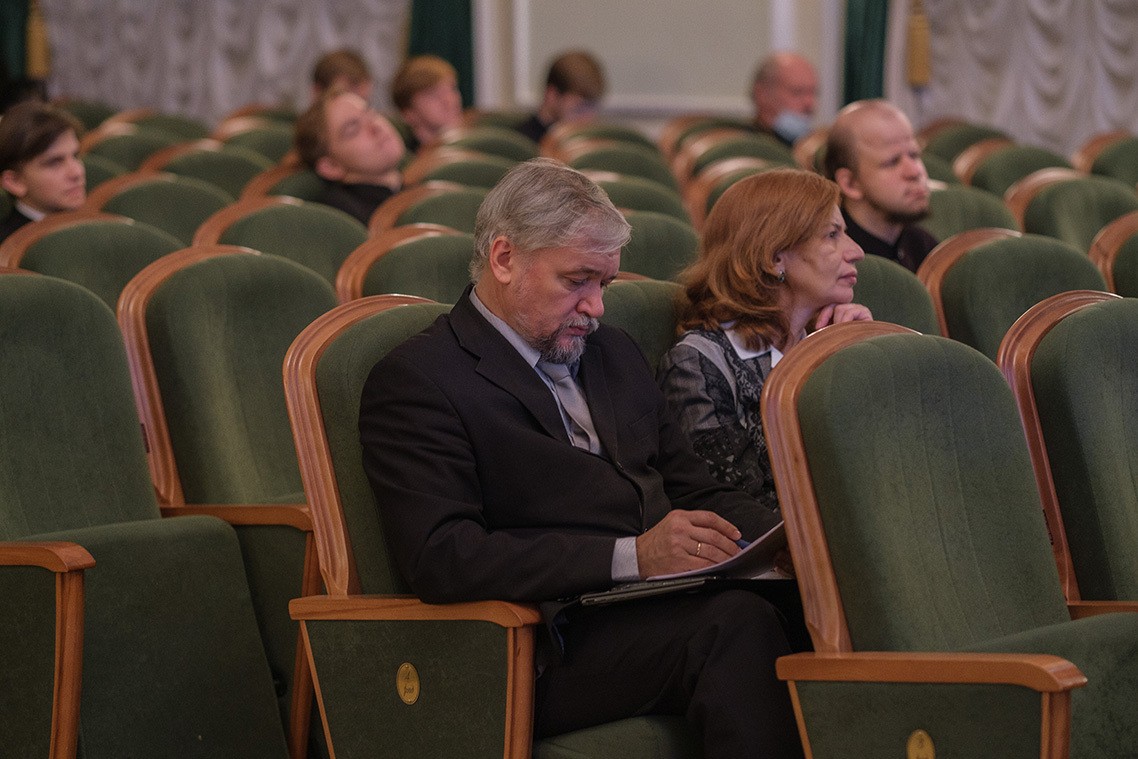
At the plenary session, there were the following reports:
Archpriest Vladislav Tsypin, Doctor of Theology, Doctor of Church History, Professor of the Church Practical Disciplines Department at the Moscow Theological Academy. St. Noble Prince Alexander of Neva in Russian Church History;
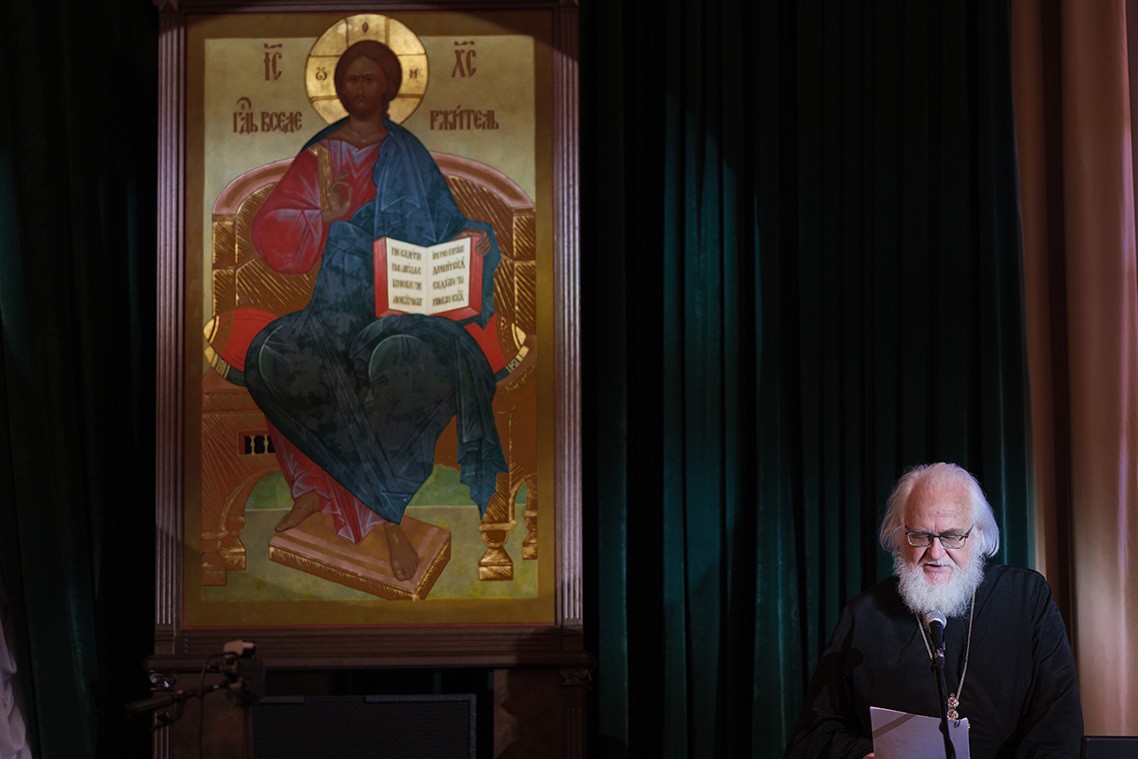
Protodeacon Vladimir Vasilik, Doctor of Historical Sciences, PhD in Philology, PhD in Theology, Professor of St. Petersburg State University, Professor of the Sretensk Theological Academy, Professor of the Perervin Theological Seminary. St. Noble Prince Alexander of Neva and the eschatological meanings of his life [Zoom];
Archpriest Alexander Timofeev, Senior lecturer of the Biblical Studies Department at the Moscow Theological Academy. Who was and who was not St. Noble Prince Alexander of Neva? The life of the saint in the light of modern historical data;
Archpriest Alexander Zadornov, PhD in Theology, Associate Professor of the Church Practical Disciplines Department at the Moscow Theological Academy. European canonical theories of church authority in the 13th century;
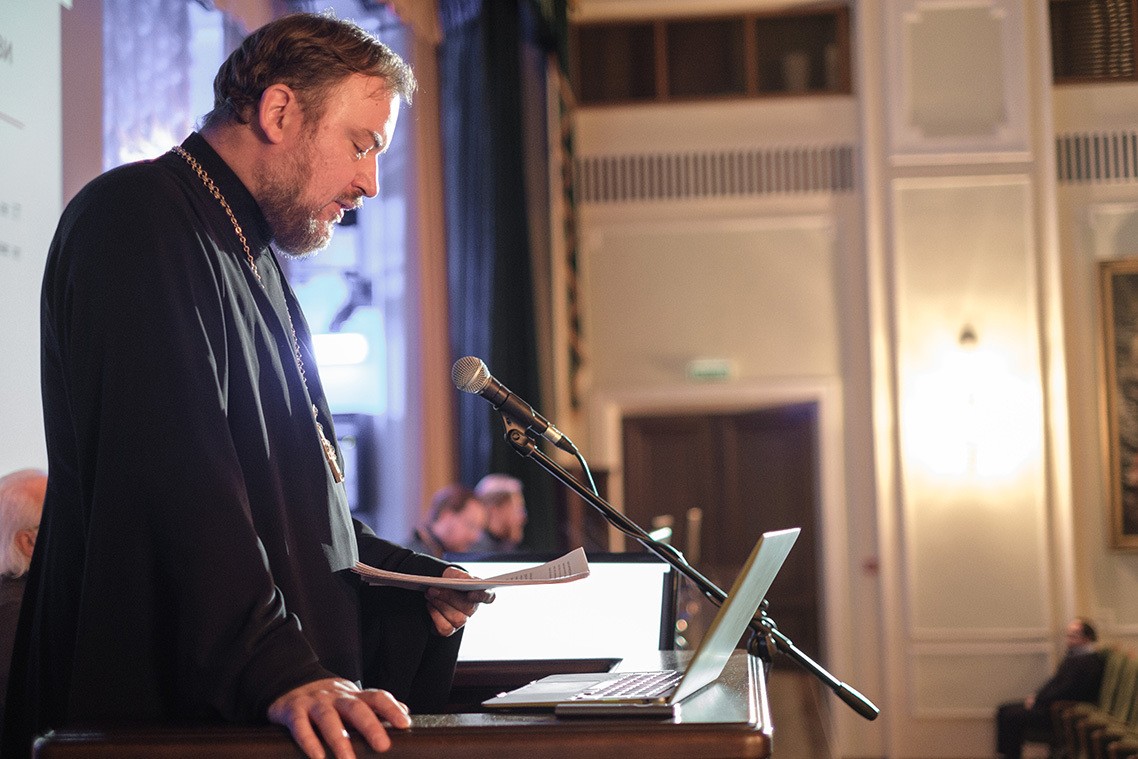
T.Yu. Tokareva, Head of the scientific fund department "History and culture of the Sergiev Posad region in the XIV - early XX centuries" at the Sergiev Posad Museum-Reserve; S.Yu. Shokarev, PhD in History, a leading researcher at the Sergiev Posad Museum-Reserve. The tombstone of Alexander of Neva in the 17th century: new aspects of its study;
I. M. Zubrenko, Senior lecturer of the History and Theory of Church Art Department at the Moscow Theological Academy. The image of St. Alexander of Neva in the murals of the Cathedral of Christ the Savior.
Afternoon sessions were on Theology, Biblical studies, Christian writing, Church history, Canon law, Liturgy and Christian art.
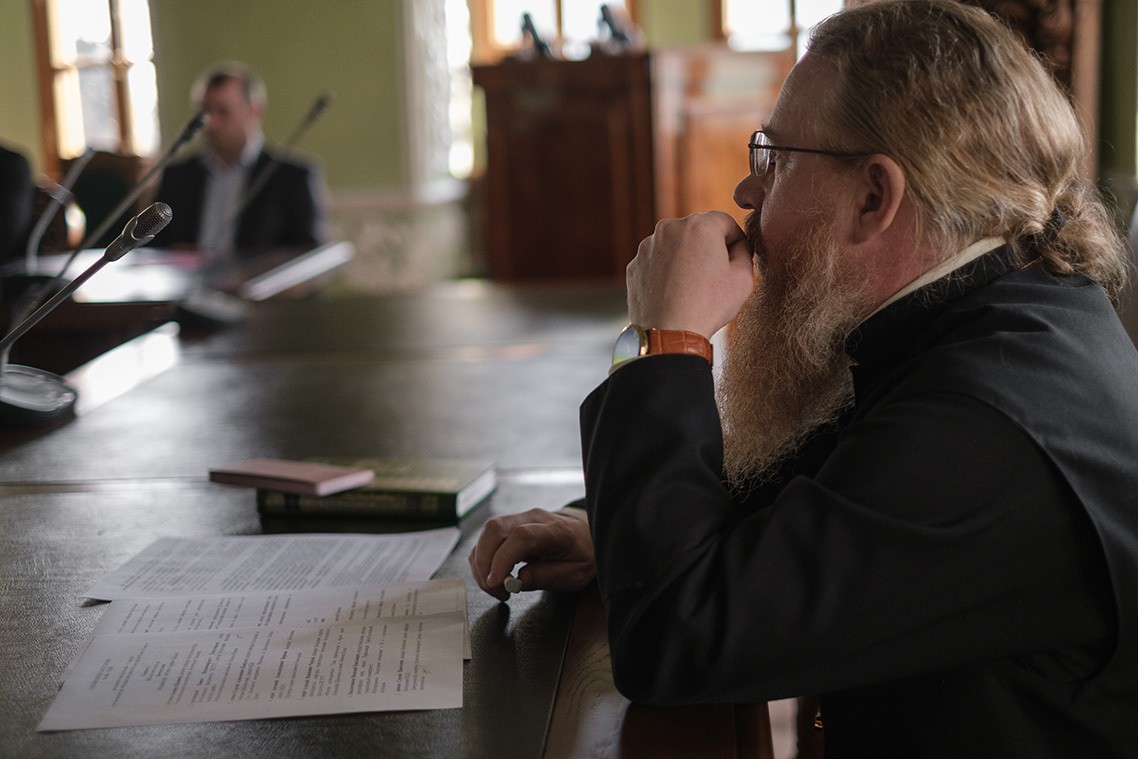
They were held in a blended format to enable all participants to share the results of their research and discuss them with colleagues from different educational institutions.
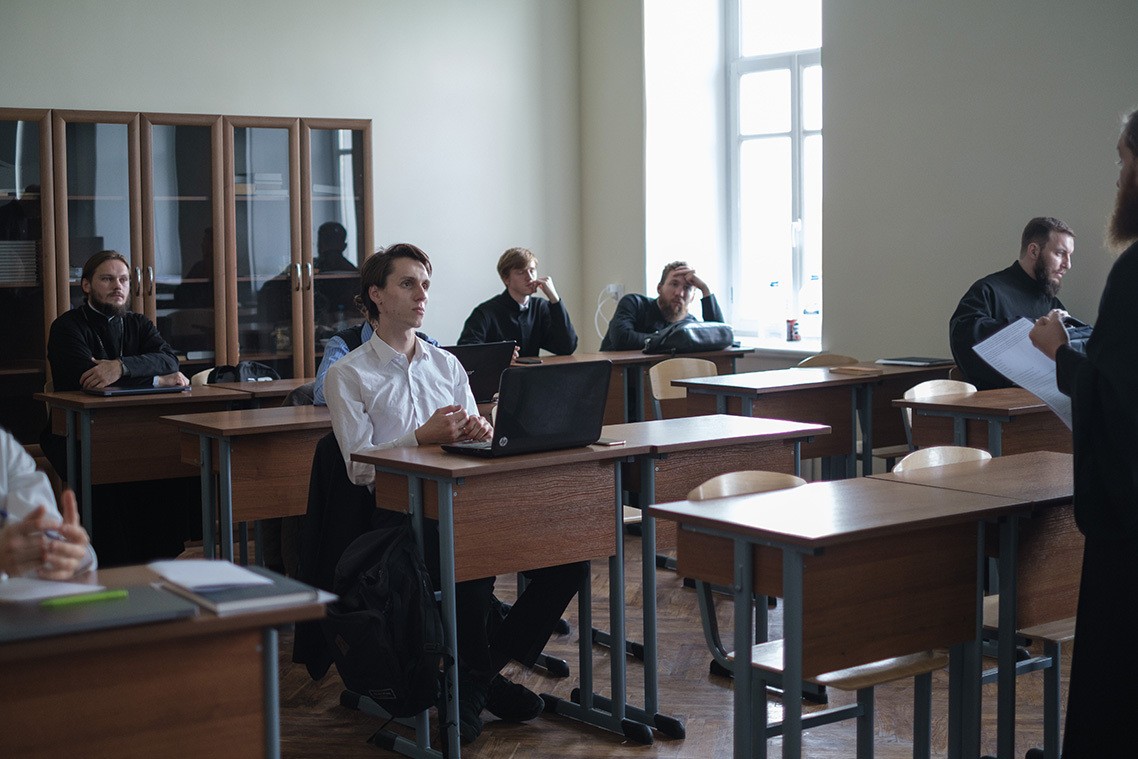
Two sections considered some theological issues of modern theological science and history of a religious thought. Other two sections were dedicated to Church history.
The section on Christian writing, which is traditional for academic studies, brought together researchers in Philology, Patrology and Christian writing in general.
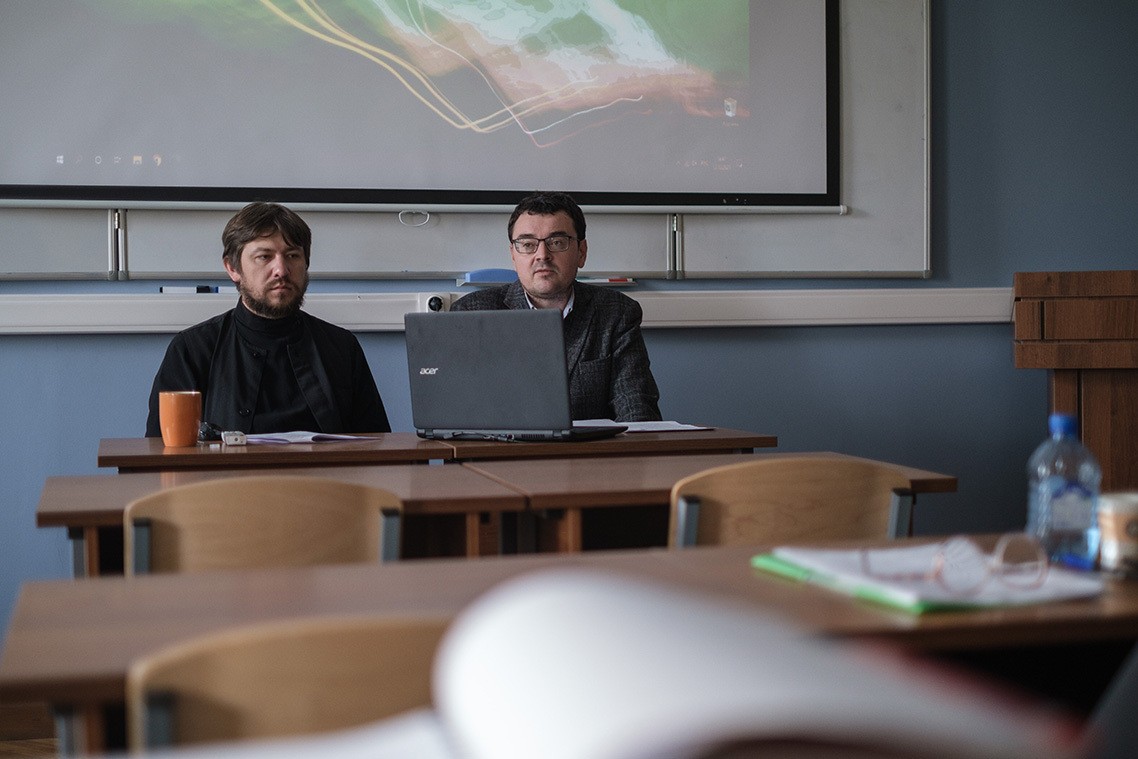
The section "Exegetics and Hermeneutics of Holy Scripture in the legacy of St. Simeon the New Theologian" focused on a few aspects of St. Simeon’s teaching reflected in his hymnographic and ascetic works. Special attention was paid to his interpretation of Holy Scripture in an ascetic manner.
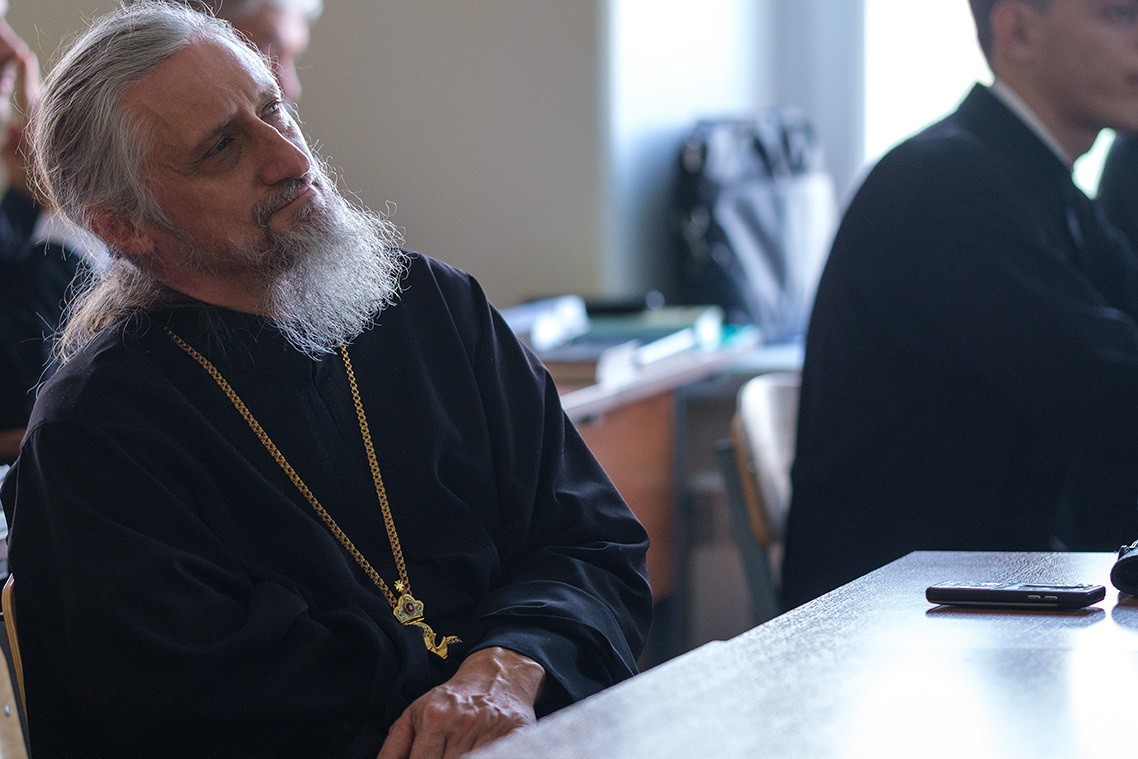
The Metropolitan of Smolensk and Dorogobuzh Isidor, Ph.D. in Theology and Ph.D. in Law, opened a section on the Canon law with his report on "Features of the system of church law in the writings of Bishop John (Sokolov)." His report aroused great interest and a lively discussion about various aspects of the canonical heritage in a modern church life.
Archpriest Sergiy Zolotarev, Senior lecturer of the Theology Department at the St. Petersburg Theological Academy, opened the section "Russian Church Art: From the Middle Ages to the Present" with his report on “The Shroud “ Sophia the Wisdom of God ”from the collection of the MThA Museum “Church and Archeological Cabinet”: an attempt of a hermeneutic analysis”. Overall, there were 11 reports, which caused a lively discussion and put many interesting questions for further research prospects.
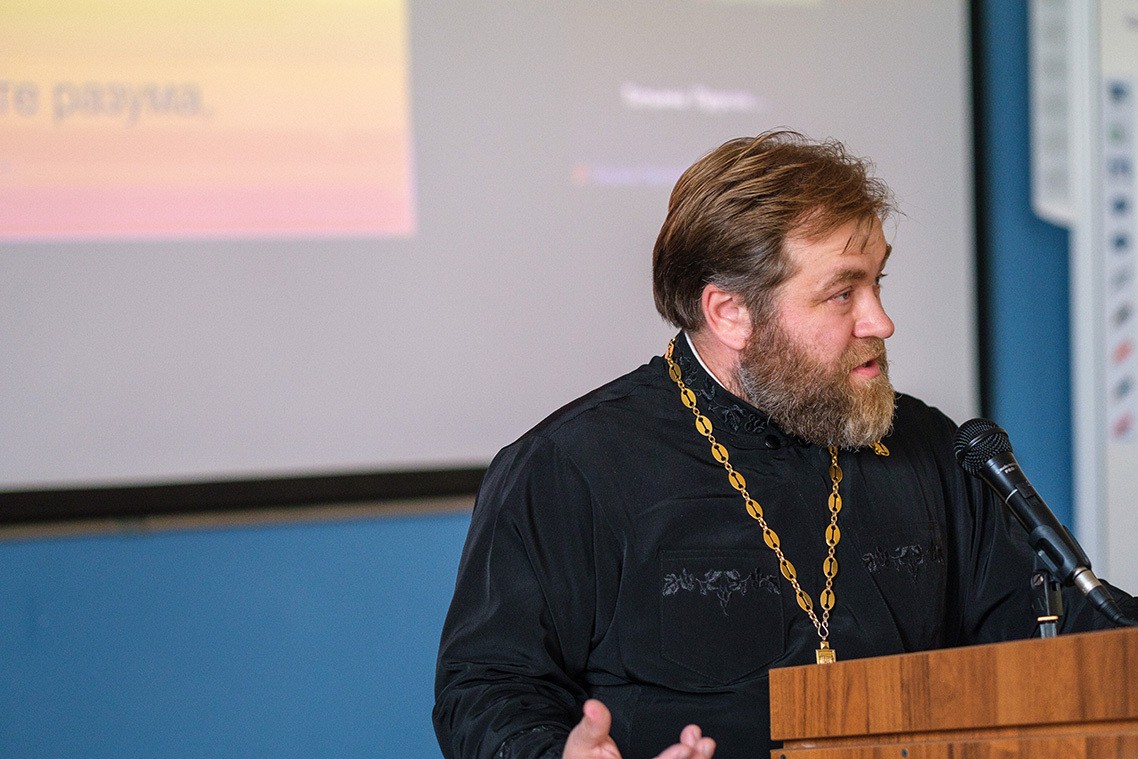
At the Liturgy section there were 8 presentations on ancient liturgical regulations in the light of their modern usage; the formation of Russian historical and liturgical science; the practice of using antimensions at the Eucharist celebration by Russian Orthodox confessors in the 20th century; the history of a prayer "For the authorities" in the Russian Orthodox Church.
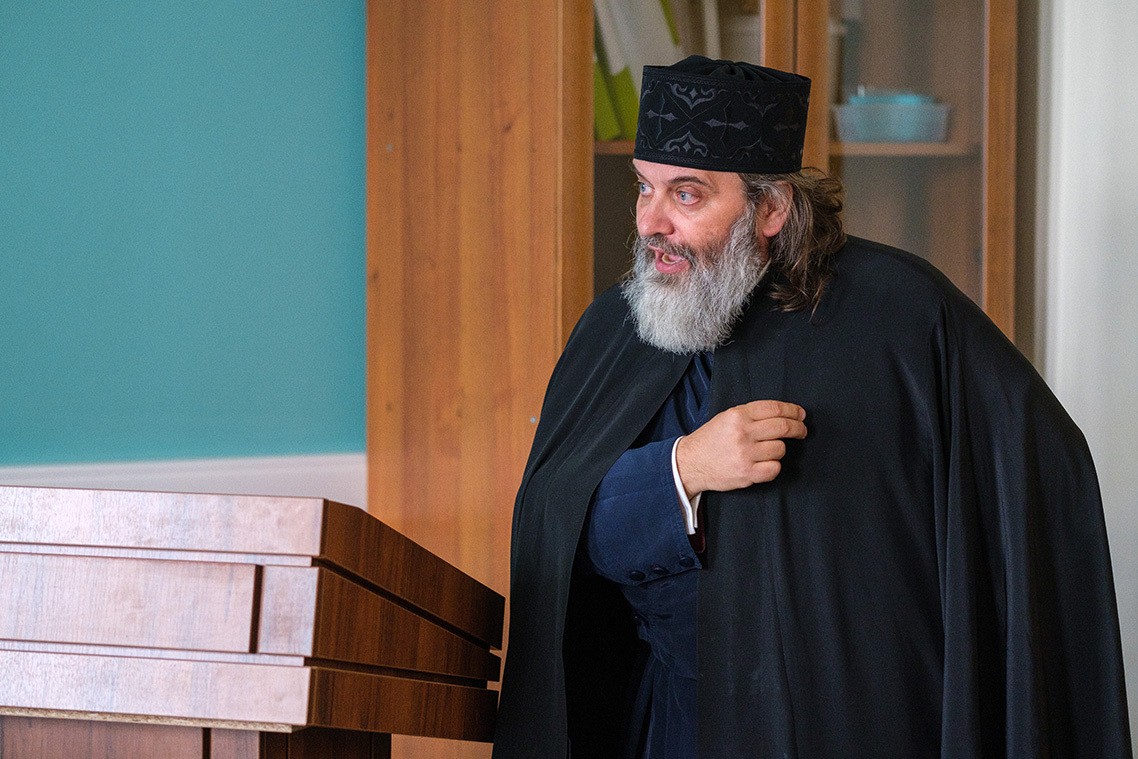
All reports brought a great interest and caused a lively discussion among the participants.
MThA Press Office
